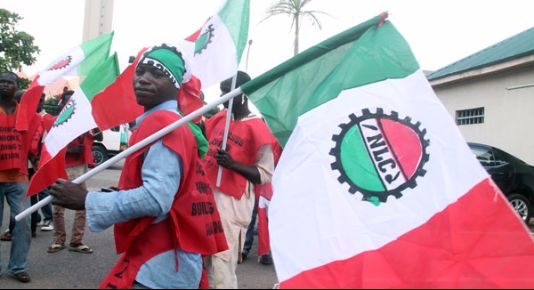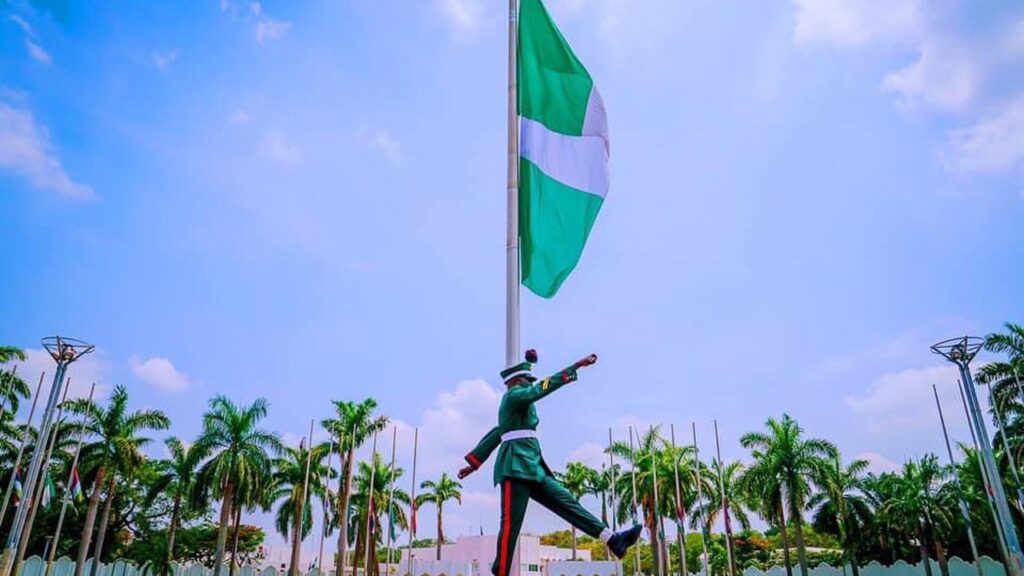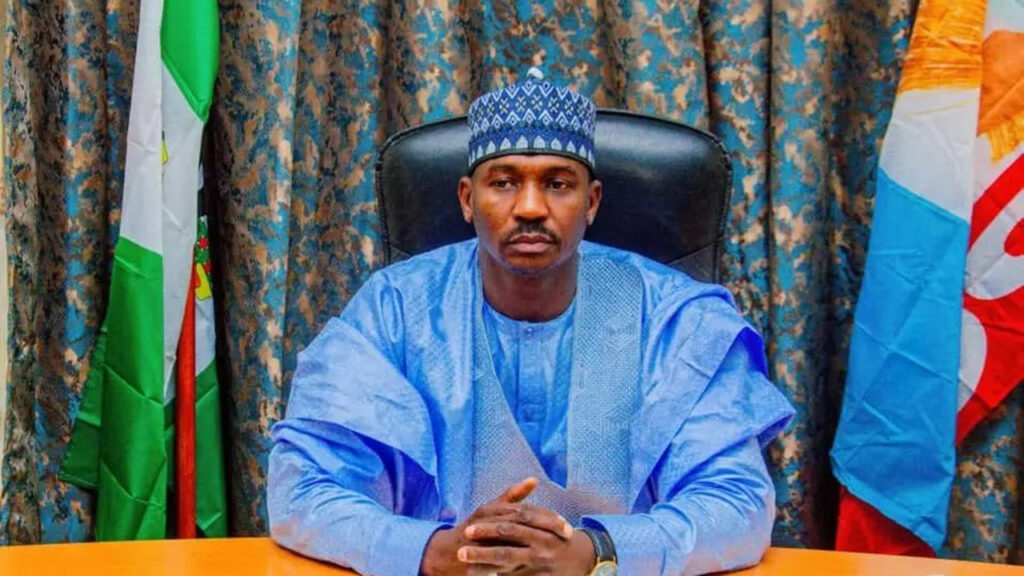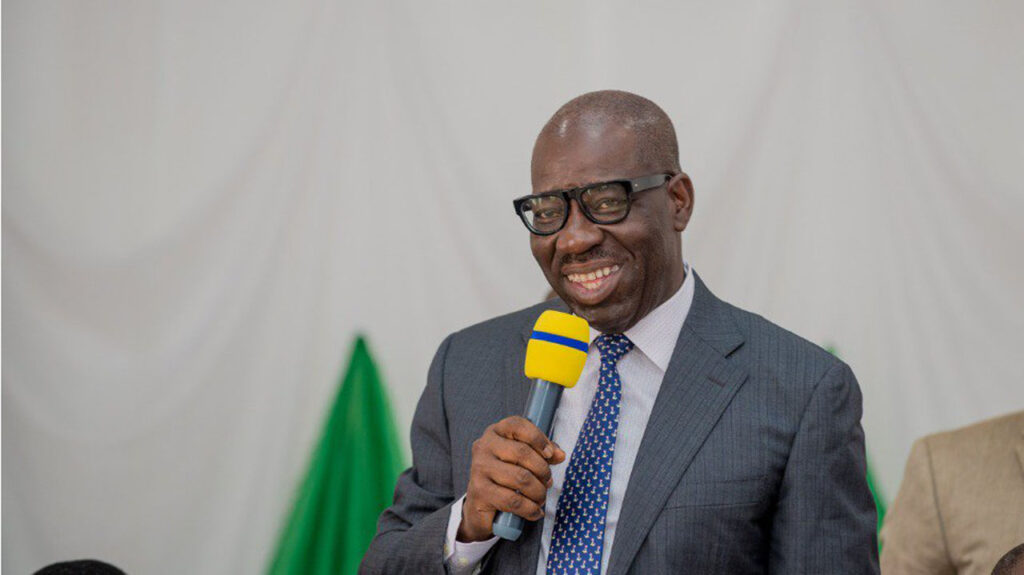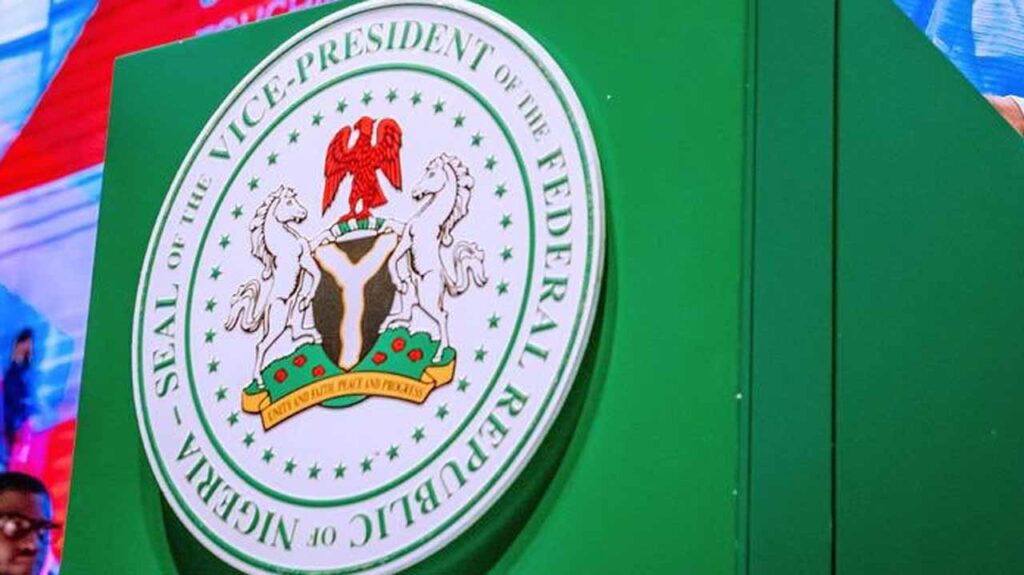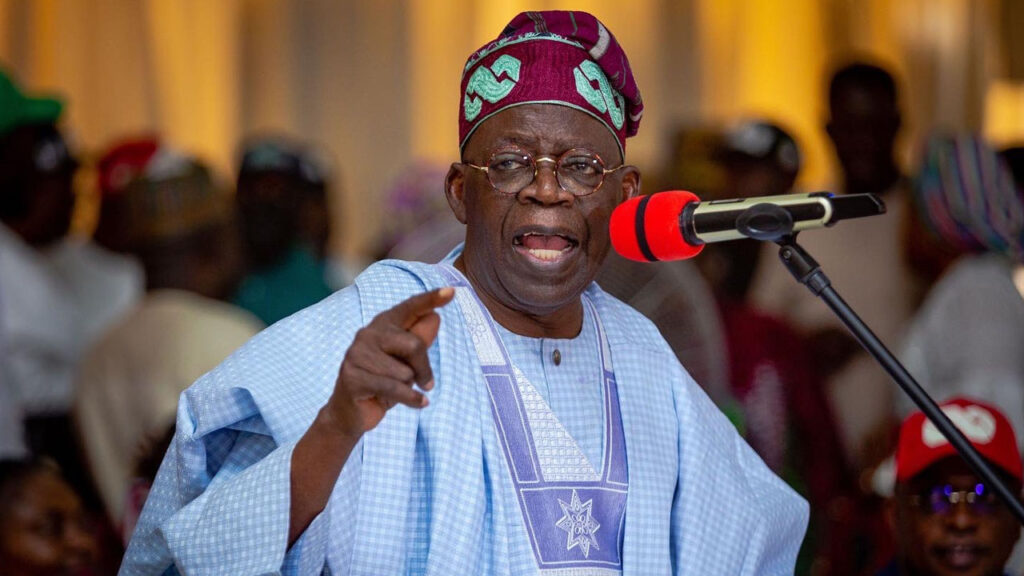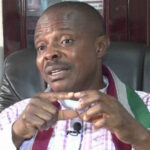All gloves seem to be off as organised labour leaders decided to unbraid Senator George Akume, Secretary to the Government of the Federation (SGF) and leader of government’s team negotiating the minimum wage with the organised labour leaders after they practically shut down our country on June 3.
As the verbal exchange between the leaders of labour and government rages on and Nigerians are lapping up all the drama, what seems to have been lost on the nation is the gravity of and dire consequences of shutting down the national grid by the obviously enraged and therefore rampaging labour activists that were intent on bringing government down to its knees via a forced lock-down.
Has anyone considered a scenario whereby those that forcefully took control of critical and sensitive assets of our country are non state actors who have taken up arms against our country?
Think of a scenario whereby those that switched off our electricity grid were religious insurgents-Boko Haram, ISWAP that are holding sway in the northern region or sovereign state agitators like IPOB, ESN in the eastern flanks and Oodua Peoples Congress in the south west axis of our country or environmental rights activists like Niger Delta militants in the treasure trove of Nigeria?
Our country got very close to that apocalystic situation on June 3, when organised labour embarked on industrial action to enforce their demand for minimum wage increase.
At the risk of being tagged an alarmist, the scenario described above is one of the teachable moments for me in the minimum wage increase agitation by the organised labour pitched against the Federal Government that is making frantic efforts to manage the crisis for an equitable solution.
The first to literally draw blood in the war of words was the SGF, Senator Akume, whose verbal umbrage was triggered by the reported loss of some lives in hospitals country wide when labour activists forced their way into the national electricity grid to switch off power supply nationwide.
That resulted in reported loss of lives of sick people that were on life support gadgets in hospitals, even as medical doctors that could have helped save lives were stopped from going into the hospitals to attend to patients. Ideally when strikes are called, those on essential duties are not prevented from working.
Obviously, unbemused about the catastrophic consequences of the strike action that resulted in a practical lockdown of our country for at least 48 hours , the SGF accused labour leaders of economic sabotage and characterised their crime as treasonable felony.
Not taking the SGF’s umbraiding lying low, the leaders of organised labour have gone ballistic by pushing back via their mocking of the SGF by alleging that politicians, which is the ‘tribe’ that the SGF belongs are the real ecomomic saboteurs:
The 36 state governors that are leading the components of the country at the subnational level, all of which together constitute Nigerian nation, who felt like, to borrow a popular local cliche, that their hair was being shaven behind their back; in the sense that a national minimum wage which would be binding on them to pay workers at the state level was being discussed and decided without their input, had to join the fray.
In their statement they expressed the concern that: “The N60,000 minimum wage proposal is not sustainable and cannot fly. It will simply mean that many states will spend all their FAAC allocations on just paying salaries with nothing left for development purposes. In fact, a few states will end up borrowing to pay workers every month. We do not think this will be in the collective interest of the country, including workers.”
Expectedly, the governors have also become targets of the fiery darts and missiles of the angry labour unions. As the popular aphorism goes ‘a hungry man, is an angry man’.
There is no argument about the fact that Nigerian workers have been negatively impacted by the reform initiatives of the incumbent administration.
Even President Tinubu acknowledges that fact, hence he provided an interim remedial measure, which is the Federal Government award of N35,000 (strangely it is not being talked about very much ) as extra bonus on the N30,000 minumum wage to workers pending when the amount to replace the one that has recently expired, is agreed upon.
All over the world, labour union leaders have the reputation of being feisty, fiery and ferocious.
On the other hand, what also needs to be tested for veracity by being put in the crucible of truth are the charges against politicians at both federal and sub national levels by the labour leaders who are claiming that they did no wrong by plunging the nation into total darkness to drive home their demand for increase in minimum wage for workers and then accused politicians of being the real economic saboteurs.
So, l posed the question of whether the switching off of electricity from the national grid was a treasonable felony using Artificial Intelligence, AI tool, and below is the response:
“Labour unions do not have the right to switch off the national electricity grid as a form of strike protest. While labour unions have the right to peaceful strike actions, sabotaging or tampering with critical infrastructure like the national electricity grid is illegal and potentially dangerous.
“Such actions could lead to serious consequences, including, endangering public safety, causing widespread economic disruption, damaging equipment as well as, infrastructure, violating labour laws and regulations. Instead, labour unions can typically engage in peaceful strike actions like: work stoppages, picketing, rallies and negotiations.
“Unions may also explore other creative and lawful tactics to draw attention to their demands, like social media campaigns or public outreach efforts.”
In the light of the forgoing, the SGF is right in his allegation that organised labour might have committed treasonable felony by switching off the national electricity grid because it has had grave consequences on the economy of Nigeria and lives of Nigerians.
The second teachable moment from the minimum wage negotiation to me is whether the labour leaders are correct in labeling politicians as the ‘real’ saboteurs when they made the statement.
The truth and sad reality is that we are all swimming in the cesspool of corruption that equates with economic sabotage, so there is no need expressing righteous indignation of only condemning corruption when agitating for pay rise.
How about our labour leaders becoming more innovative by creating anti corruption vanguards/squads in government institutions to nip the crime in the bud?
As the conventional wisdom goes.‘Corruption steals from us all’.
To be clear, one is not holding brief for the members of the political class, or in any way trying to absolve them of their culpabilty in corrupt practices that expose our dear native land to economic sabotage. But l am simply drawing attention to the fact that the allegations by labour leaders that politicians are the ‘real’ saboteurs is spurious and malicious because it is a case of the kettle calling the pot black.
In my view, the vitriolic exchanges are unhelpful and mischevious and at best diversionary.
Instead of chasing the shadows, which the grandstanding by organised labour amounts to, they should invest more energy in identifying and addressing the primary cause/causes of the spike in the cost of living of which one of them is food insecurity and the other is due to ongoing economic reforms.
That brings me to the third teachable moment which revolves around the law governing national minimum wage negotiations.
It would need to be reviewed because as it currently stands it negates the spirit and letter of true federalism since it empowers the Federal Government to pass national minimum wage, precluding state governments from fixing their minimum wage based on the resources available in the economy to support low or high wage.
For instance, would it not be foolhardy for Lagos state that earns Internally Generated Revenue (IGR) in excess of N260 billion annually pay the same minimum wage to workers in Zamfara, Ekiti or Ebonyi states with little or no economic activities from which revenue could be derived as tax?
Clearly, fixing a national minimum wage that is binding on all the component states that constitute Nigeria would vitiate the concept of autonomy that is the underguarding principle of democracy and which would contradict the concept and practice of true federalism, which is central to the practice of presidential system of government that is in operation in our country.
Arising from the above, the national mininum wage provision in section 4 of the 1999 constitution of Nigeria would appear to be an aberration or a contradiction of the concept and practice of true federalism which our nation prides herself as practicing.
As such, that provision for fixing a national minimum wage in section 4 of the 1999 constitution would need to be revisited with a view to tweaking or expunging it to reflect the dynamics of autonomy intrinsinc in the practice of true federalism as it obtains in the U.S. from where we borrowed the presidential system.
There are several other teachable moments that one has gleaned from the ongoing minimum wage umpasse that my good friend, Segun Adeniyi , the Editorial Board Chairman of Thisday newspaper has titled: “ Minimum Wage and Maximum Rage” in his column last week but time and space would not permit my laying all of them out in this piece.
Be that as it may, inflation in Nigeria, especially of the food hue has hit an all time high which is in excess of 40 per cent.
Obviously the N30,000 minimum wage plus the N35,000 hardship/bonus pay introduced by President Tinubu to cushion the negative fallout of the ongoing socio-economic reforms has not been good enough antidote to the current galloping inflation.
What elementary economics teaches us is that inflation sets in when a lot of money is chasing few goods.
Bearing that in mind, what needs to be done, in my humble opinion is increase the productive/production base of our economy.
Of course one is aware of dollar scarcity and exit of some multinational manufacturing firms with low capital threshold from our country.
So, one is not being too bullish about improvements in manufactured products being abundant until the volatility in the financial sector particularly with respect to foreign exchange rate and crude oil sales are better managed.
But targeting food inflation that has been skybound, it appears to me that one of the ways to tackle the hardship being experienced by workers would be to boost food security which is currently like a mirrage in light of the high level of insecuriy driven by non state actors-religious insurgents, bandits and separatists/ sovereign state agitators that have heightened insecurity and made farming either as a profession or vocation very difficult, if not impossible.
Since professional farming is currently highly risky in light of how Boko Haram, a couple of years ago gruesomely beheaded some farmers in Sokoto state who defiled their order not to go to farm, vocational farming in gardens around the homes of workers remains a good option to augument food supply that is fast drying up.
Therefore, a pertinent question to ask is: are our labour leaders considering a solution to the hardships from the prism highlighted above?
Why must money or wage increase be the only optics from which solution to current hardships is being considered?
Are our labour leaders not aware that even if the N250,000 minimum wage that they are agitating for is agreed, in less than three months, all things being equal, inflation would catch up with the wage increase even if it is as high as the N500,000 that is their original demand?
My humble counsel would be that workers should weigh all the options available and find a middle ground, even as l urge them to regard government as partners in progress not adversaries as evidenced by the barbs that they are currently being traded with government functionaries, including those in the two branches-executive and legislative.
Even government afficionados at both national and subnational levels have not escaped the tongue lashing by organised labour operatives, which is unfortunate because it is making our beloved country look like a theatre of the absurd to onlookers, both locally and internationally.
On the part of government, restoring security by reining in the outlaws that are putting lives at risk and making farming difficult, if not imposible should be priotised.
To make our country great, our labour leaders must transit from being mere workers to problem solvers by becoming a source of innovation and a bastion of productive workforce that would propel our country into ultimately attaining a level of human, food and energy security that have been the dream of the masses which our leaders have been struggling to make manifest.
Onyibe, a Public Policy Analyst and former Commissioner in Delta State, wrote from Lagos.

